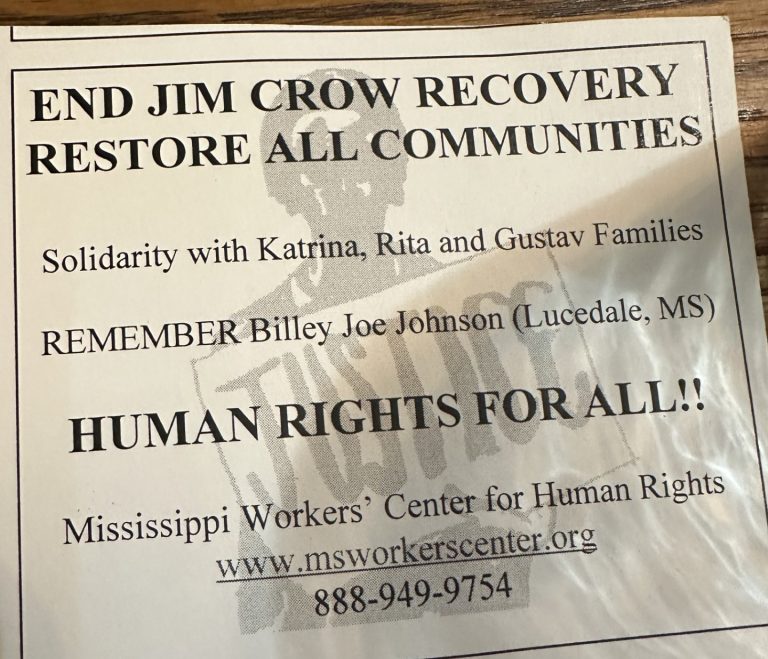Solidarity, Not Charity, End Jim Crow Recovery, Restore All Communities
When I got the call, I was just leaving Magnolia Bar’s Summit at Tougaloo College. It was one of the courageous Ingalls Shipyard workers, whom I had the honor of representing in a race discrimination case. We were advised not to try to come back to the coast. Hurricane Katrina had touched down and the roads are blocked. Our clients packed up our hotel rooms and put our belongings in storage. What followed were harrowing calls and text messages, describing widespread loss of homes, deaths, evictions and injuries. The levies had broken! The sagging infrastructures gave way. Lives already hit hard from other storms and inequities, were once again embattled. It is no surprise that those who had very little to begin with, were the ones who were abandoned by the system.















